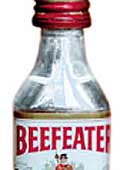|
There's
a new joke doing the rounds in Kolkata these days: Where in the
world would you still find characters out of a P.G. Wodehouse novel?
Answer: At Kolkata's old clubs. ''The atmosphere at Calcutta Club
is positively Wodehousean,'' says Arijit Roychoudhury, a third generation
member, ''...and the member profile more so: very genteel and upper
class.'' But hiding behind these quasi-literary allusions is another
interesting story: These old clubs are, collectively, possibly the
last pockets of the Raj-era boxwallah culture in the world.
Says Bhaskar Sen, bar-at-law and President
of Calcutta Club: ''We have a tradition that we try very hard to
preserve.'' Adds Amiya Gooptu, industrialist, Honorary Consul-General
of Hungary and former President of Bengal Club, arguably the most
prestigious of Kolkata's city clubs: ''These are typically British
institutions where people of standing come to meet, network and
relax. Once inside, you are transported to another era when hectic
schedules and stiff targets meant being ready for the evening ball
after five gin-and-limes in the afternoon and three rounds of tennis.''
It is still common for the who's who of society
to drop in at these clubs. Bengal Club is famous for its cuisine.
Dr Andrew Hall, Deputy High Commissioner of UK in Kolkata, is a
regular, as are Erhard Zander, Consul General of Germany, Anne Wright
and corporate honchos like Bhaskar Mitter, Purnendu Chatterjee,
P.C. Narielwala and Sukhendu Roy.
Whisky and soda have replaced gin and lime,
but everything else remains exactly as it was 50 years ago. Lunch
is a Continental affair and smoking is not allowed in the dining
hall before 2.30. ''You'll find members lighting up cigars at 2.31,''
says Gooptu with a chuckle. There's no ban on cigarettes, but it's
considered poor form to light one in the main dining hall.
This formal-even stiff-atmosphere is present
at Calcutta Club as well. Come November 15, the official onset of
winter according to the Raj calendar, and a jacket and tie becomes
mandatory for entry into the club's main lounge and dining hall.
The Foundation Day Commemorative Dinner is a tuxedo-and-bow-tie
affair. ''Their Consommé soup (a soup of non-veg extracts)
is still the best in India,'' says a member. Here, waiters (called
khanshamas) and wine stewards (called abdars) move quietly around
servicing their patrons.
 The
Raj-era boxwallah culture at these clubs extends towards their attitude
to women as well. Calcutta Club has a men's bar which is called
just that-Men's Bar. But Room No. 7 in the same club balances this
out; men can't enter it unless accompanied by a woman. ''It could
be your two-year-old daughter... you won't be allowed in without
her,'' informs Roychoudhury. The
Raj-era boxwallah culture at these clubs extends towards their attitude
to women as well. Calcutta Club has a men's bar which is called
just that-Men's Bar. But Room No. 7 in the same club balances this
out; men can't enter it unless accompanied by a woman. ''It could
be your two-year-old daughter... you won't be allowed in without
her,'' informs Roychoudhury.
''We encourage our member's wives to take an
active interest in the affairs of the club,'' says Sen. ''Our Ladies'
Advisory Sub-Committee is in charge of gardening, housekeeping and
cleanliness. They even have their own functions and plays.''
Neither Bengal Club, nor Calcutta Club have
single ladies as members, though widows are allowed all facilities
save the right to vote at club elections. ''There's nothing in the
constitution of the club that stops us from taking in women members,''
explains Sen, ''it's just a tradition.'' But the debate is on and
gender equality might still enter these hallowed institutions. In
this respect, though, the Calcutta Cricket and Football Club, better
known by its acronym CC&FC has stolen a march over the Big Two.
It opened its doors to lady members four years ago. Says Oindrilla
Dutt, event manager, newspaper columnist and the first lady member
of the club: ''It was M.J.Z. Mowla, then president of the club,
who invited me to become a member.'' Mowla, a senior vice president
of Bata, had to get the rules changed to allow Dutt in. Today, CC&FC
has about 20 women members.
But old habits die hard. At Bengal Club, the
third oldest social club in the world, members are divided into
two categories: town members (those who live in Kolkata) and mofussil
members. ''Even today, members who live in Delhi, Mumbai or elsewhere
are classified as mofussil members,'' says Gooptu with a twinkle
in his eyes. ''This dates back to the days when Calcutta was the
centre of the British Raj and rest of the country was considered
the backwaters.''
This attitude probably stems from the days
when the Viceroy of India met members of the Bengal Chamber of Commerce-the
premier European trade body of the Raj era-for lunch at Bengal Club
on the last day of February every year. In his pre-lunch speech,
he outlined his government's economic priorities and set out the
economic policies his government would pursue in the following financial
year. ''This was the forerunner to the Budget speeches of today,''
informs Gooptu. Finance ministers of today would be interested to
learn that proposals were greeted not with the thumping of desks
but with loud cheers and tinkle of glass hitting glass as members
toasted to His Excellency, the Viceroy of India.
 |
| CALCUTTA CLUB: The
old-fashioned club boasts a men's bar called just that-Men's
Bar |
Indians were strictly barred from entering then.
So were dogs. ''In this respect, the Bombay Yacht Club was ahead
of Bengal Club; members could be accompanied by their canine pets,''
chuckles Gooptu. The first Indian members were admitted to the club
in 1959, a full 12 years after Independence. Calcutta Club, of course,
was very different. Set up in 1907 by leading Indian and British
figures of the day, it had a tradition of electing Indian and European
presidents every alternate year; its 22-member executive committee
was also divided equally between the rulers and the ruled. Now,
of course, the club has no expat members left. The last time a foreigner
presided over the club was in 1975 when Englishman A.G.M. Twinning
was elected president.
But how do these clubs maintain their standards?
''We have very strict membership criteria,'' says Sen. Gooptu concurs.
''At the Bengal Club, membership is by invitation only. If a member
(of at least five years) wants to propose a new member, he circulates
an unsigned note giving the details of the person concerned. If
the committee members find the person suitable, he is invited over
for a drink and a chat with the committee. It's all very friendly
and chummy but it allows the committee of elders to size up the
prospective candidate. If after this, the committee decides to accept
him, he is issued an invitation to join the club,'' he says. The
club has opened its doors to corporate members but only the top
three men of the member companies are allowed to use it.
Calcutta Club, and almost all the other Brit
clubs in Kolkata and elsewhere, pretty much follow variations of
this routine when admitting members, but Bengal Club is still acknowledged
to have the most rigorous screening process in the country.
But you can't really shield institutions completely
from the societies they serve. The winds of change are now blowing-albeit
slowly-through the portals of these clubs as well. The May Queen
balls, the Come September dances and the turkey-and-brandy pudding
routine is now complemented by Diwali and Holi gatherings and Poila
Baisakh lunches. Club libraries now stock vernacular titles and
translations of leading vernacular literary works.
But despite these concessions, the old Kolkata
clubs still have an aura that Bertie Wooster and all his titled
relatives would have been proud of.
|
